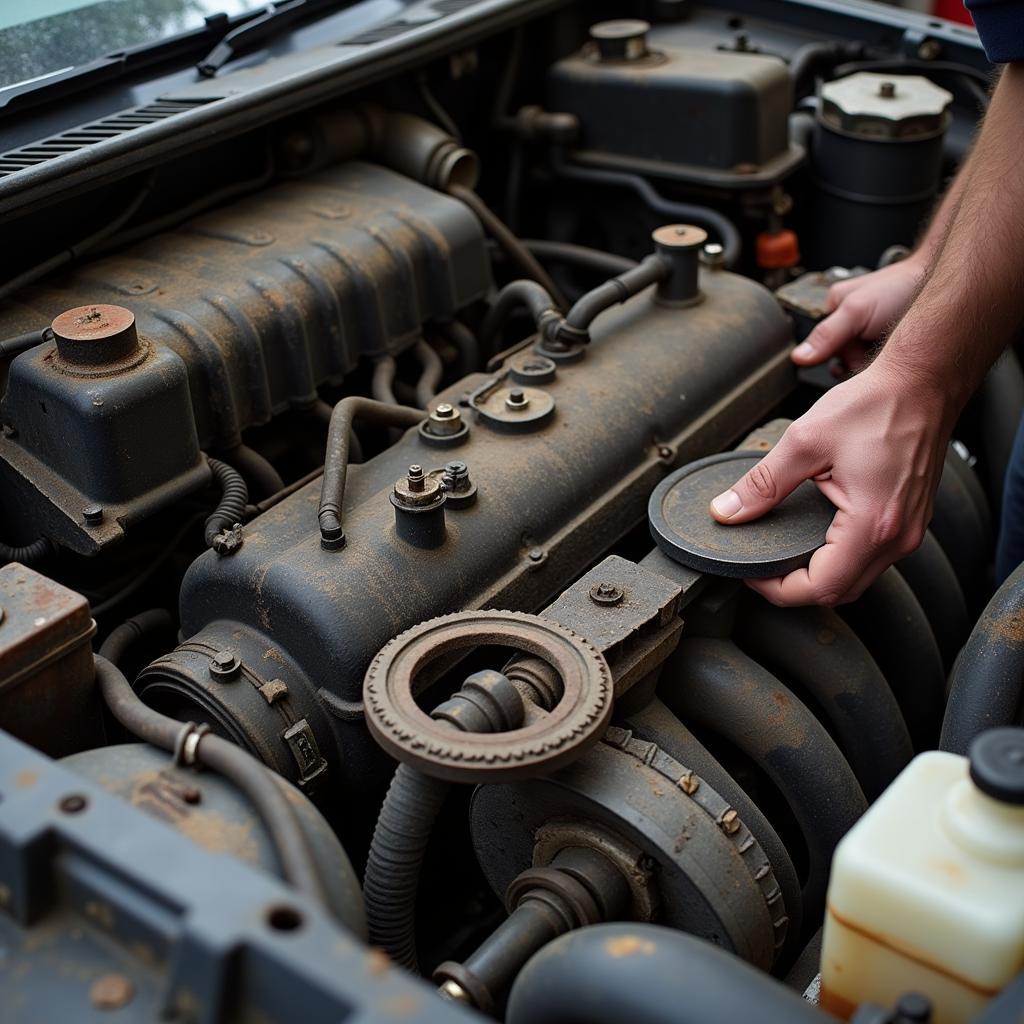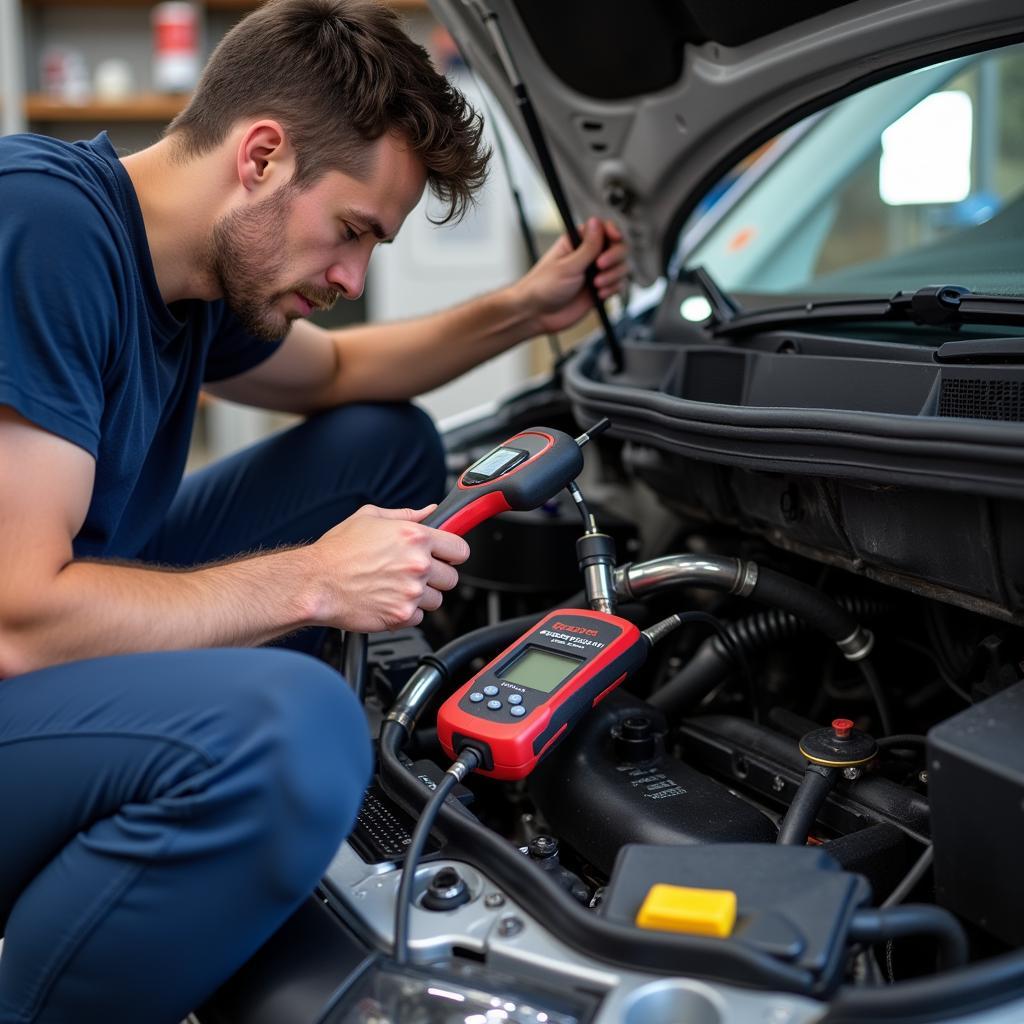Should I Service My Car Every Year?
Owning a car comes with responsibilities, and regular servicing is one of the most important. But with so much information out there, it’s natural to wonder: Should I Service My Car Every Year? The answer isn’t always a simple yes or no. Let’s dive into the factors that determine the ideal car service frequency for you.
Factors Affecting Car Service Frequency
While the age-old advice of “every year or every 12,000 miles” still holds some weight, several factors influence how often your car needs a service.
1. Manufacturer Recommendations
Your car’s owner’s manual is your holy grail. It outlines the manufacturer’s recommended service intervals based on your specific make and model. These recommendations consider factors like engine type, driving conditions, and oil grade.
2. Driving Conditions
Do you frequently navigate city traffic, dusty roads, or extreme weather? These demanding conditions can put more strain on your car’s components, requiring more frequent servicing than someone who primarily drives on highways.
 Car navigating through heavy city traffic
Car navigating through heavy city traffic
3. Driving Style
Aggressive acceleration, hard braking, and high-speed driving can all contribute to faster wear and tear on your car’s parts. If this sounds like your driving style, you might need to service your car more often.
4. Age and Mileage of Your Car
Older cars and those with high mileage often require more frequent servicing. This is because parts naturally wear down over time and with use, increasing the risk of breakdowns or malfunctions.
 Close-up of an older car engine showing signs of wear and tear
Close-up of an older car engine showing signs of wear and tear
5. Warning Signs and Unusual Noises
Beyond scheduled maintenance, pay attention to your car’s warning lights and any unusual noises or vibrations. These are your car’s way of telling you something is wrong and needs attention, potentially requiring an unscheduled service visit.
Benefits of Regular Car Servicing
Regular servicing isn’t just about checking boxes; it offers tangible benefits:
- Safety: Regular inspections can identify potential safety hazards like worn brakes or tire issues before they become serious problems.
- Performance: A well-maintained car runs smoother, offers better fuel efficiency, and provides optimal performance.
- Longevity: Regular servicing helps prevent major breakdowns and extends the lifespan of your car.
- Resale Value: A well-maintained car with a documented service history commands a higher resale value.
“Skipping scheduled maintenance might seem like a way to save money in the short term, but it almost always leads to costlier repairs down the road,” says John Miller, Senior Mechanic at CarFix Auto Services. “Think of regular servicing as an investment in your car’s health and your peace of mind.”
What Happens During a Car Service?
A standard car service typically includes:
- Oil and filter change: This is essential for engine lubrication and performance.
- Fluid top-ups: Brake fluid, coolant, power steering fluid, and windshield washer fluid are checked and topped up as needed.
- Tire inspection: Tire pressure, tread depth, and overall condition are checked for safety and optimal performance.
- Brake inspection: Brake pads, rotors, and lines are inspected for wear and tear.
- Battery check: The battery’s charge and overall health are assessed.
 A mechanic reviewing a car service checklist with a customer
A mechanic reviewing a car service checklist with a customer
Finding the Right Service Schedule for Your Car
Don’t leave your car’s service schedule to chance. Consult your owner’s manual, consider your driving habits, and stay vigilant for any warning signs.
- New Cars: Generally follow the manufacturer’s recommended schedule.
- Used Cars: If you’re unsure about the service history, start with a comprehensive inspection and service.
- High-Mileage Cars: Consider more frequent servicing, especially for essential components like brakes and tires.
Remember, you can always discuss your car’s specific needs with a trusted mechanic. They can help you create a personalized service schedule that keeps your car running smoothly for years to come.
FAQs
1. Is it okay to get my car serviced less frequently if I don’t drive much?
Even if you’re not clocking in many miles, time can still take a toll on your car’s fluids, battery, and rubber components. It’s best to follow the time-based service intervals outlined in your owner’s manual, even if the mileage recommendations aren’t met.
2. Can I service my car myself?
While some basic maintenance tasks like checking tire pressure or refilling fluids can be done at home, it’s generally recommended to leave major servicing to qualified mechanics. They have the expertise, tools, and knowledge to ensure the job is done correctly.
3. What happens if I delay a scheduled service?
Delaying a scheduled service can increase the risk of breakdowns, reduce fuel efficiency, and potentially void your car’s warranty. It’s always best to stick to the recommended service schedule as closely as possible.
4. How can I find a reliable mechanic?
Ask for recommendations from friends, family, or online forums. Look for mechanics who are certified, experienced, and have positive customer reviews.
5. How much does a car service typically cost?
The cost of a car service can vary depending on the make and model of your car, the type of service required, and the location. It’s always best to get a quote from your chosen mechanic before proceeding with any work.
Still have questions about when you should service your car?
For more information on car servicing or other car maintenance advice, check out our related articles:
- Should I save service my car every year?
- Should I get my car serviced every year?
- How to service air cond car
- How to service your car properly
- How long until Nissan services car
Regular car servicing is an essential aspect of car ownership. By understanding the factors that influence service frequency and following a proper maintenance schedule, you can ensure your car remains safe, reliable, and performs at its best for years to come.
Need help with car diagnostics or looking for a reliable mechanic? Contact our team via WhatsApp: +1(641)206-8880 or Email: [email protected] for 24/7 support.

